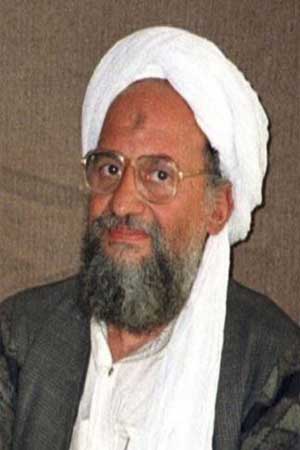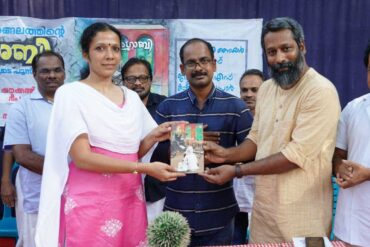On September 4, 2014, the leader of al-Qaeda, Ayman al-Zawahiri, announced the creation of al-Qaeda in the Indian Subcontinent (AQIS). The establishment of this new al-Qaeda branch intersected with two other major political developments in 2014: the advent of ISIS’ “caliphate” in Syria-Iraq in June, and, in May, the election of Narendra Modi as Prime Minister in India, which brought Hindu Nationalism into the social and political mainstream. In response to these two developments, ISIS subsequently undertook to establish its own presence in South Asia. In May 2019, following an ISIS attack on Indian security forces in Kashmir, the caliphate movement announced that it had created a Wilayah (province) for India.

Today, both ISIS and AQIS are competing throughout South Asia to win recruits, conduct terror attacks, and foment religious turmoil—and both have increasingly fixed their gaze on India. While it has been widely recognized these two Salafi-Jihadist movements are seeking to exploit Muslim-Hindu communal tensions in India for their own gain, less attention has been paid to their rhetoric about the Modi government and the social and political ascendancy of Hindutva or Hindu Nationalism. This dynamic demands greater attention.
The rise of Hindu Nationalism in recent decades has exacerbated communal tensions in parts of India, while Hindutva extremists have committed serial crimes against Muslims. Zawahiri himself referenced these crimes—particularly the anti-Muslim pogroms in Gujurat in 2002—when he announced the formation of AQIS. ISIS ideologists have since done the same. Indeed, both groups argue that India’s Hindus and Muslims are inexorably at odds with one another and the rise of Hindutva confirms this.
Salafi-Jihadist rhetoric about Hindutva has focused on two primary issues: the oppression, both real and perceived, of Muslims under the BJP government in India, and the so-called “failure” of democracy in India. In this narrative, the alleged failure of democracy in India is evident in the Indian State’s failure to protect Muslims from Hindutva majoritarianism, discrimination, and violence. This, they claim, vindicates the Islamist view that democracy is intrinsically un-Islamic and against Muslims. Both groups are now attempting to shatter India’s democracy and traditions of religious co-existence in order to foment religious war.
By highlighting anti-Muslim rhetoric and violence, these militant groups hope to eliminate the ‘grayzone’ or the plane of coexistence between Muslims and non-Muslims. An expert on ISIS explained that the grayzone will be destroyed both by the Islamic State as well as by non-Muslims in the “Crusader” nations. The author claims that the “Islamophobia” faced by Muslim minorities in the West is only strengthened by the existence of the caliphate movement and the violence it commits.
Thus, by capitalizing on Islamophobia within Western societies, ISIS believes they will fuel anti-Muslim hatred and delegitimize Muslim leaders and others who advocate for coexistence and democratic moderation. This, in turn, empowers greater anti-Muslim sentiment and bigotry in Crusader nations, which divides Muslims from their fellow citizens and facilitates the deterioration of enemy states. Anti-Muslim attacks will encourage other Muslims to defend themselves and strike back, leading to a cycle of brutality. In this escalation of hate and violence, the group hopes to leave Muslims with no choice but to join the caliphate movement.
While the grayzone article in Dabiq, the English online magazine of ISIS, focused exclusively on destabilizing “Crusader” societies in the West, the ISIS and al-Qaeda propaganda about India reflects similar themes. By declaring that Indian democracy has failed, and by highlighting the abuses of Muslims by extremist Hindutva forces, Salafi-Jihadism wants to persuade Indian Muslims they will never be accepted by their Hindu brethren.
In 2017, AQIS and its affiliates regularly published various forms of propagandized videos targeting India. The theme of Hindus oppressing Muslims runs throughout their videos. Between November and December of 2017, AQIS published a media series called “Saffron Terror.” The title references the controversial moniker of terrorism committed by Hindu groups against Muslims in India. Each video in the series follows a similar pattern. They begin with a clip of a Muslim being brutalized by Hindu nationalists, or of a Hindutva ideologue making derogatory remarks about Islam. A common theme was put forth, that Muslims are under attack and the state is complicit in the violence.
But the narrative on Hindutva ties into criticism of India’s democracy. Many jihadist supporters have argued that India’s democracy allows Hindus to prey on Muslims, and promises of citizenship in India’s constitution are not acceptable. First, the constitution requires recognizing India’s sovereignty in return for protection and safety. This would mean that Muslims are breaking tawhid (the oneness concept of monotheism in Islam) and accepting another’s rule instead of Allah’s rule, and thus it would compromise their faith. The second objection is straightforward: the promises of India’s liberal constitution are not kept. “Indian Muslims are facing discrimination and injustice across the country. In other words, even if Indian Muslims have made maximum compromises on the deen, they still haven’t got the safety and peace which the constitution promises.”
Referring to the Hindutva forces as fascists, the objections continue: “Even after 70 years of getting independence, Indian Muslims have not got equal justice or equal opportunity. This is Allah’s punishment for leaving his deen.” As their statements affirm, Salafi-Jihadists perceive democracy as a tool for the oppression of Muslims in India and beyond. This democratic oppression, they argue, will only increase with Hindu Nationalists in power.
While the grievances have merits and India’s democracy is far from perfect, these groups have clearly-defined ulterior motives. For the Islamists, jihad is more than a religious obligation; it is a sacred necessity to protect the lives and honor of the Muslim community. Abdul Rasheed, an ISIS member from Kerala, stated, “What is Allahu saying? It says we should kill these people who do not worship Allahu. Fight with them and kill them. No democracy, Hinduism or Christianity should prevail. You should fight them. You should go on war against them. All of you are well educated by going to schools and colleges. Use your brains and get rid of the kufrs.”
While urging Malayali Muslims to join the caliphate and fight, Rasheed criticizes various Muslim organizations for their willingness to “have the time of your life by eating and going to a hotel and enjoying life with the kafirs.” Similarly, Zakir Musa (real name Zakir Bhat), a former Hizbul Mujahideen commander who formed the AQ-aligned Ansar Ghazwat-ul-Hind, called Indian Muslims spineless and “the most unconscionable” for their refusal to fight.
However, despite increasing communal tensions, relatively few Indian Muslims have so far joined either group, and instead, have repeatedly condemned the terror groups. Likewise, Hindus who support the Modi government do not necessarily support the goals of extremist elements in the Hindutva movement. Indeed, some Indian Muslim commentators have even taken the challenges posed by the social and political ascendancy of the Hindutva movement as a call to improve their own material and societal conditions. Moreover, despite the real threats posed by Salafi-Jihadism, Indian institutions and civil society have shown great resilience.
As ISIS and AQIS strive to incite greater conflict, a wise response from Indian statesmen and India’s citizens will be essential to defend democratic co-existence and secure the nation.
This article has been adapted from the author’s paper, “The Salafi-Jihadist Reaction to Hindu Nationalism” in Current Trends in Islamist Ideology.







